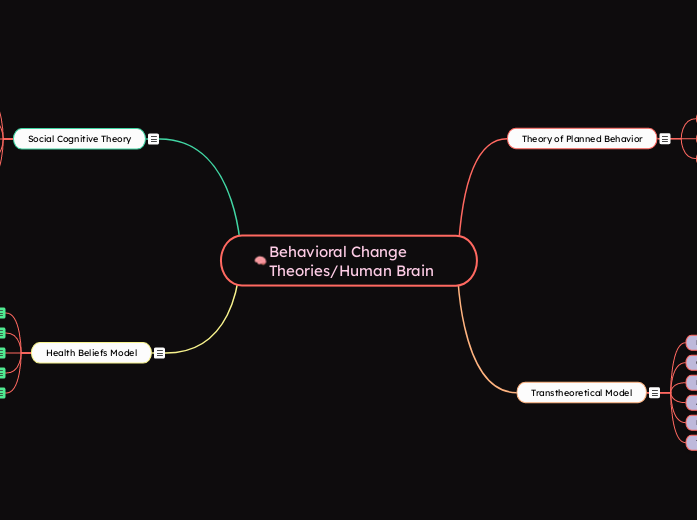Behavioral Change Theories/Human Brain
Theory of Planned Behavior
Attitude
Perceived Behavioral Control
Subjective norms
Transtheoretical Model
Precontemplation
Contemplation
Preparation
Action
Maintenance
Termination
Social Cognitive Theory
Outcome Expectation
Self-Efficacy Expectation
Reciprocal Determinism
Observational learning
Behavioral Capability
Health Beliefs Model
Perceived Susceptibility
Perceived Severity
Perceived Benefits
Perceived Barriers
Cues to Action
